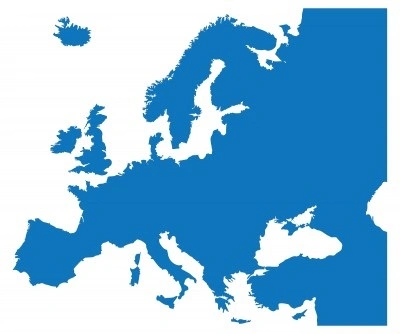Greece Today, a nation in southeastern Europe, part of the Balkan Peninsula.
Publié le 26/01/2014

Extrait du document


«
artists carved statues and fashioned jewelry to commemorate
the gods.
The Classical Age was the height
of cultural development.
Greece 61
During all of its history, Greece was a collection
of city-states, or small communities, rather than a
nation.
These communities organized around individual
political ideals, but the people of this peninsula
shared a great deal of culture and trade.
They shared
a common language and common beliefs in the great
pantheon of Zeus and the Olympian Gods.
Though
city-states waged war with one another as well as
the people of other lands around the Mediterranean,
the people found it easy to travel between cities and
towns to visit religious sites such as Apollo’s Oracle
at Delphi, and to conduct business.
The Hellenistic Age followed the Classical Age.
It began with the conquests of Philip III and his son
Alexander the Great.
This age represented the spread
of Greek culture from Spain in the west to Pakistan
in the east.
People living in Greek colonies around
the Mediterranean Sea helped spread the concepts of
civilization to other people, greatly influencing the
lives of people of other cultures.
By the end of this
period, the Romans had spread their political and
military influence to this neighboring peninsula and
made Greece part of the Roman Empire.
The Ages of Greece
Name Time period
Early and mid-Bronze Ages 3000–1600 b.c.
Mycenaean Age 1600–1150 b.c.
Dark Ages 1150–750 b.c.
Archaic Age 750–490 b.c.
Classical Age 490–323 b.c.
Hellenistic Age 323–30 b.c..
»
↓↓↓ APERÇU DU DOCUMENT ↓↓↓
Liens utiles
- Georgi Dimitrov par Liliana Brisby Editor of " The World Today ", London Né en Bulgarie dans une famille d'ouvriers, Georgi Dimitrov est l'un des rares étrangers à avoir accédé aux plus hautes responsabilités au sein de l'État soviétique.
- The Wreck of the Deutschland (1918) Gerard Manley Hopkins Part the first To the happy memory of five Franciscan Nuns exiles by the Falk Laws drowned between midnight and morning of Dec.
- Christianisme et culture occidentale Sans quelques notions de christianisme, il est difficile de comprendre l'histoire de l'Europe, et même une bonne part de l'histoire mondiale.
- Ixion Greek King of the Lapiths in Thessaly, the largest ancient region of north-central Greece.
- Pythian Games Greek A sacred rite enacted in ancient Greece to honor the ancient serpentmonster, Python, slain by the god Apollo.







